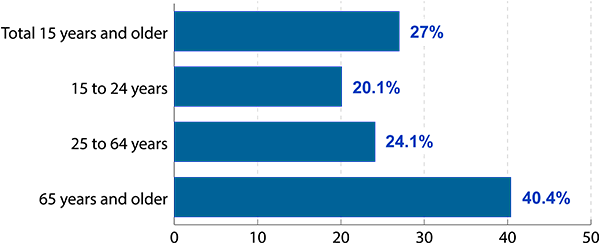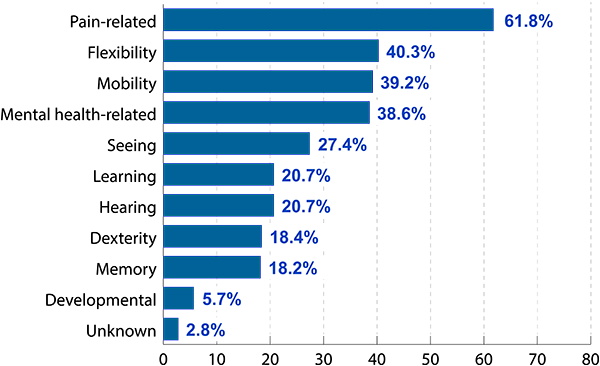Accessibility
Accessibility is the degree to which a product, device, service or environment is available to as many people as possible. It builds on the concept of universal design; by designing for human diversity, we create things that are easier for all people to use.
Digital accessibility
The web has become a key resource for information and transactions - one that society relies on on a daily basis. If done correctly, digital channels can support technologies that help overcome some barriers to accessibility that traditional channels struggle with (i.e. print, audio and visual media). Therefore it is critical that all online services need to be flexible to meet different user needs, preferences and situations.
27% of the population aged 15 years and older has one or more disabilities in Canada.
We need to ensure we are not excluding anyone from our corporate digital spaces by accounting for different:
- environments i.e. noisy public places, slow internet
- devices i.e. desktops, laptops, smart phones, assistive devices
- ages i.e. the elderly may share same functional requirements as others with disabilities but lack the skill level with assistive technologies
- languages i.e. language barriers or translation issues for non-English speakers
- abilities i.e. wide spectrum and combinations of disabilities
Disabilities by age

Disabilities by age table
| Age | Percentage |
|---|---|
| 15 years and older | 27% |
| 15 to 24 years | 20.1% |
| 25 to 64 years | 24.1% |
| 65 years and older | 40.4% |
Disabilities by type

Disabilities by type table
| Type | Percentage |
|---|---|
| Pain-related | 61.8% |
| Flexibility | 40.3% |
| Mobility | 39.2% |
| Mental health-related | 38.6% |
| Seeing | 27.4% |
| Learning | 20.7% |
| Hearing | 20.7% |
| Dexterity | 18.4% |
| Memory | 18.2% |
| Developmental | 5.7% |
| Unknown | 2.8% |
Why is accessibility important
- demonstrates SOCIAL responsibility and social inclusion
- it is more ECONOMICAL to enable users to complete transactions online instead of more costly ways
- it is a LEGAL obligation for public services to be equally available to all; it’s a basic human right
Accessibility and all corporate standards, must be followed as per the Calgary Corporate Accessibility Policy (CSPS003) and the Web Policy (GN-029) (PDF).
Accessibility is not something one does as an add-on or an afterthought. We have a responsibility to make sure that all The City of Calgary content is accessible.

